[Mariposa Lilies: The Genus Calochortus in the Columbia
River Gorge of Oregon and Washington]
Green-banded Mariposa Lily, Greenband Star Tulip, Sagebrush Mariposa Lily
Calochortus macrocarpus var. macrocarpus
Synonyms: Calochortus douglasianus, Mariposa macrocarpa
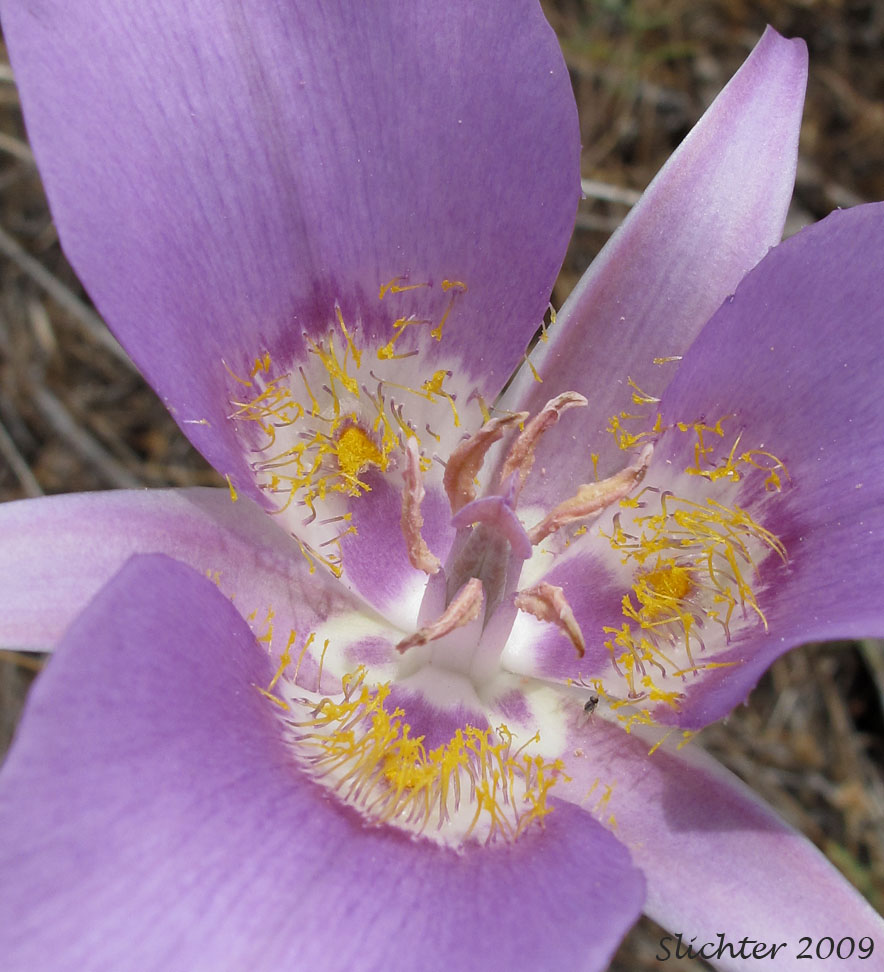
The photo above shows a close-up of the inside of the flower
of sagebrush mariposa as seen several miles west of Roosevelt, WA along Washington Highway 14.......June 16, 2009. Note the 6 narrow, elliptical
anthers covered with lavendar colored pollen, the 3 lobed style and numerous
hairs on the inside lower surface of the petals.
Characteristics:
Green-banded mariposa lily is a beautiful wildflower
of arid places, which has a large, showy flower. It has a single stout stem
arising from a deep seated bulb to a height of 24 inches. The linear leaves
are grass-like, and have parallel venation. The leaves are deeply channeled,
and three to seven may be found on the stem, with the upper being reduced in
size, and often curled downward at the tip.
One to three large, showy flowers are found at
the apex of the stem. These flowers are erect, and are white or more commonly
a rich lavender color, each with a longitudinal green stripe ranging across
the middle of the petal. The three petals are oblanceolate in shape. The three
sepals are longer than the petals, are green in color, and are narrowly lanceolate
in shape.
Once widespread across the arid regions of the
Pacific Northwest, this beautiful plant has all but disappeared from areas under
cultivation. Furthermore, it is highly palatable to livestock, so it soon disappears
from grazed lands. Hilltops and steep cliffsides where cattle cannot easily
gain access are often the only places this plant can survive. In addition, a
new danger exists. In such areas like the Bend, Sisters, Redmond areas of Oregon,
where a building boom is taking place, this wildflower is being pushed aside
by construction of scenic, "wild" communities.
Habitat:
Green-banded mariposa lily is found in loose soil
among the plains and foothills of the arid interior of the Pacific Northwest.
Range:
Green-banded mariposa lily is found from southern
British Columbia south through eastern Washington and Oregon and northern Idaho,
then eastward across the Snake River drainage to southwest Montana (Flathead
Lake at the north). It is found as far south as northeastern California and
northern Nevada.
In the Columbia River Gorge it may be found between
the elevations of 100'-2600' from the Little White Salmon River east past Biggs,
OR.
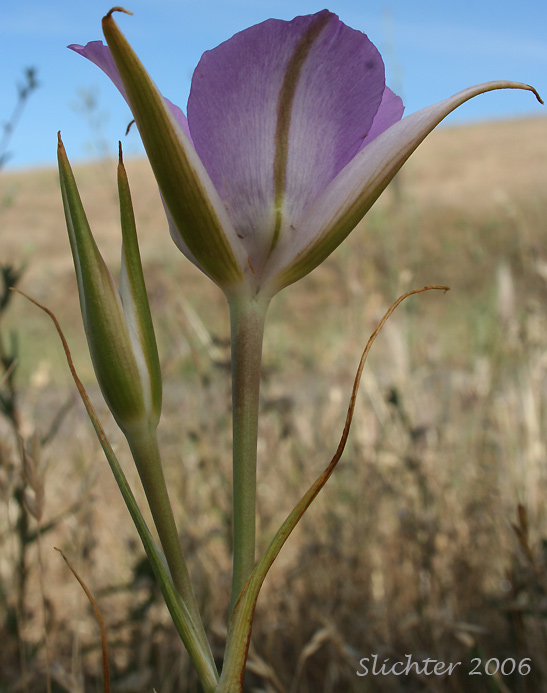
The photo above shows a close-up sideview of
the upper stem and flower of green-banded mariposa lily as seen in the Columbia
Hills to the north of The Dalles, OR........July 7, 2006. Note
the longitudinal green band on the outside of both the sepals and petals.
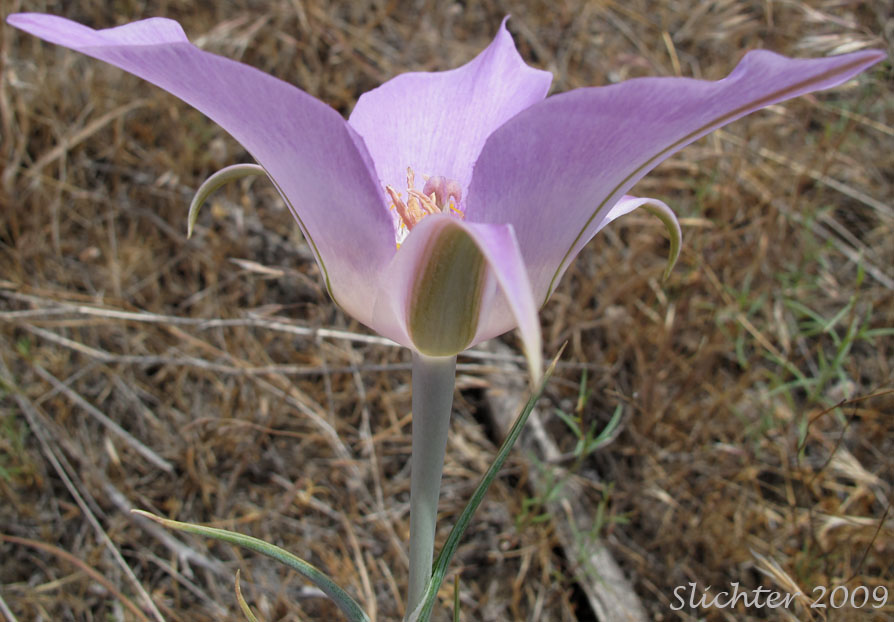 --
-- 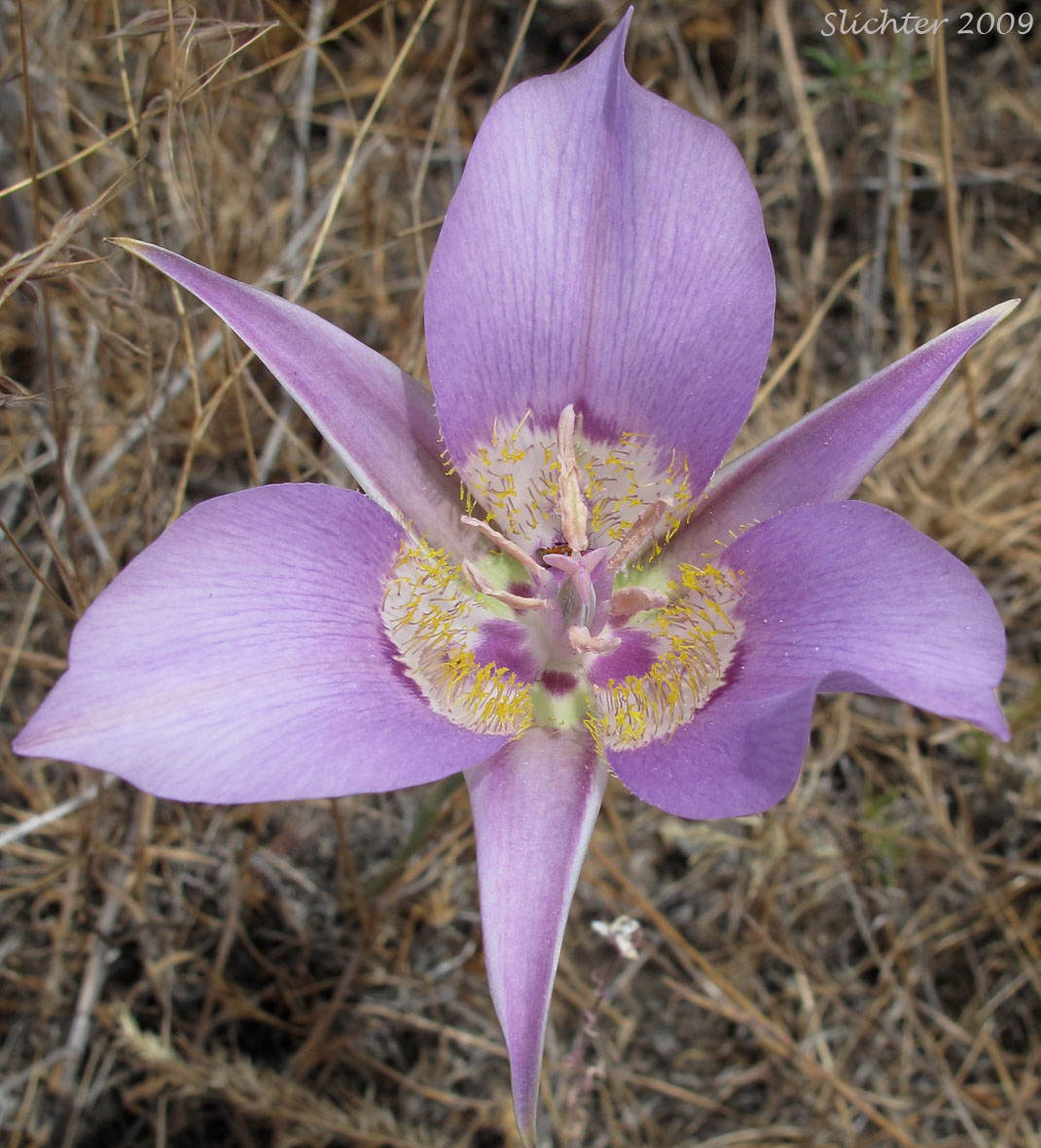
Close-up photos of the flower of sagebrush mariposa as seen several miles west of Roosevelt, WA along Washington Highway 14........June 16, 2009.
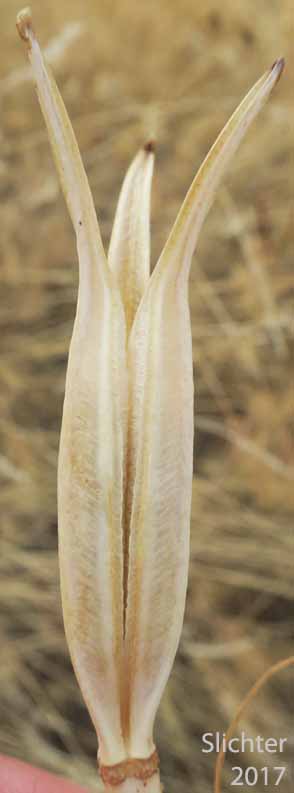 -
- 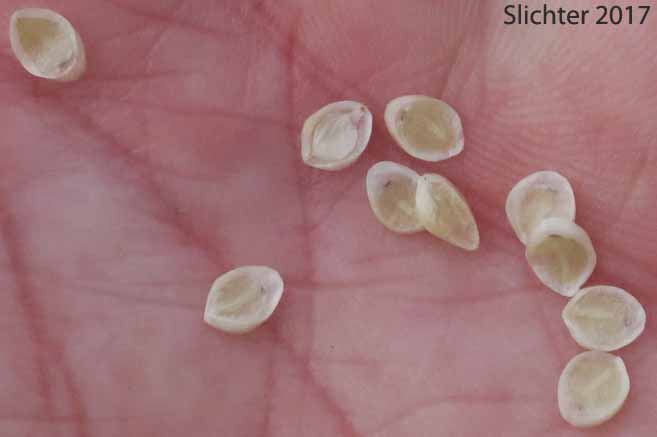
Mature seeds of the sagebrush mariposa as seen at Catherine Creek, Columbia River Gorge.........September 22, 2017.
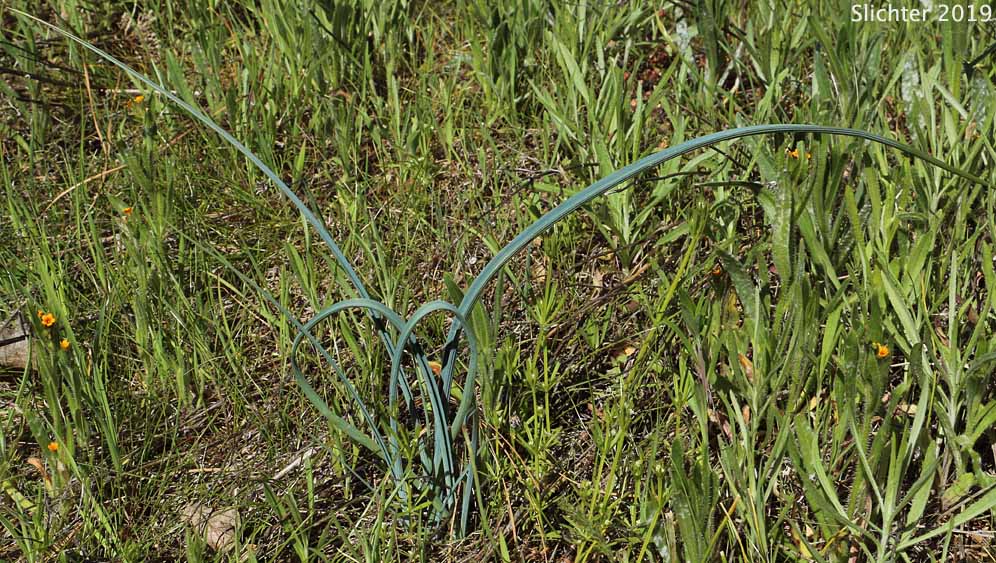 -
- 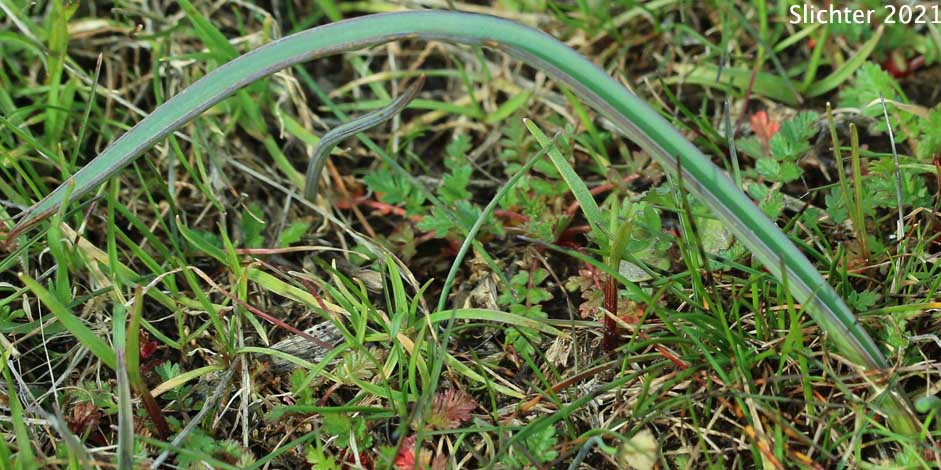
Early season leaves of sagebrush mariposa observed at left at the Mill Creek Preserve, Columbia Land Trust lands outside The Dalles.......April 28, 2019. The photo at right shows the early season basal leaf of sagebrush mariposa on USFS lands on the south side of Sevenmile Hill, near The Dalles, OR......March 4, 2021.
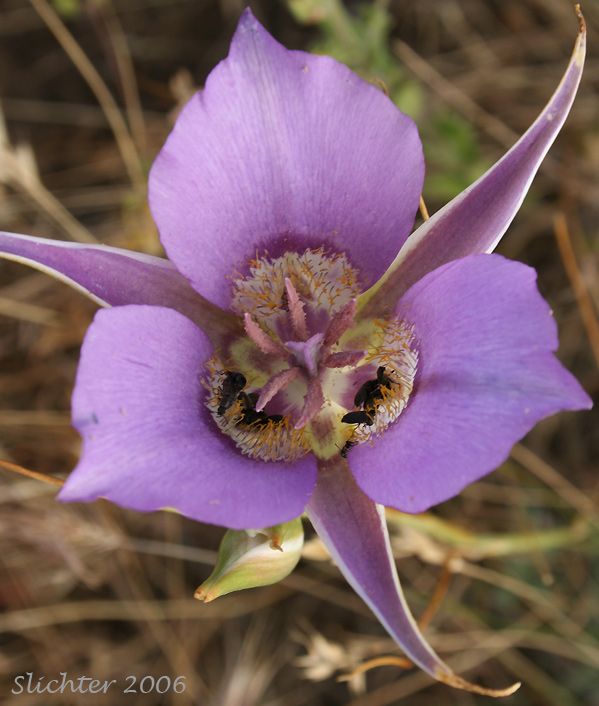 -
- 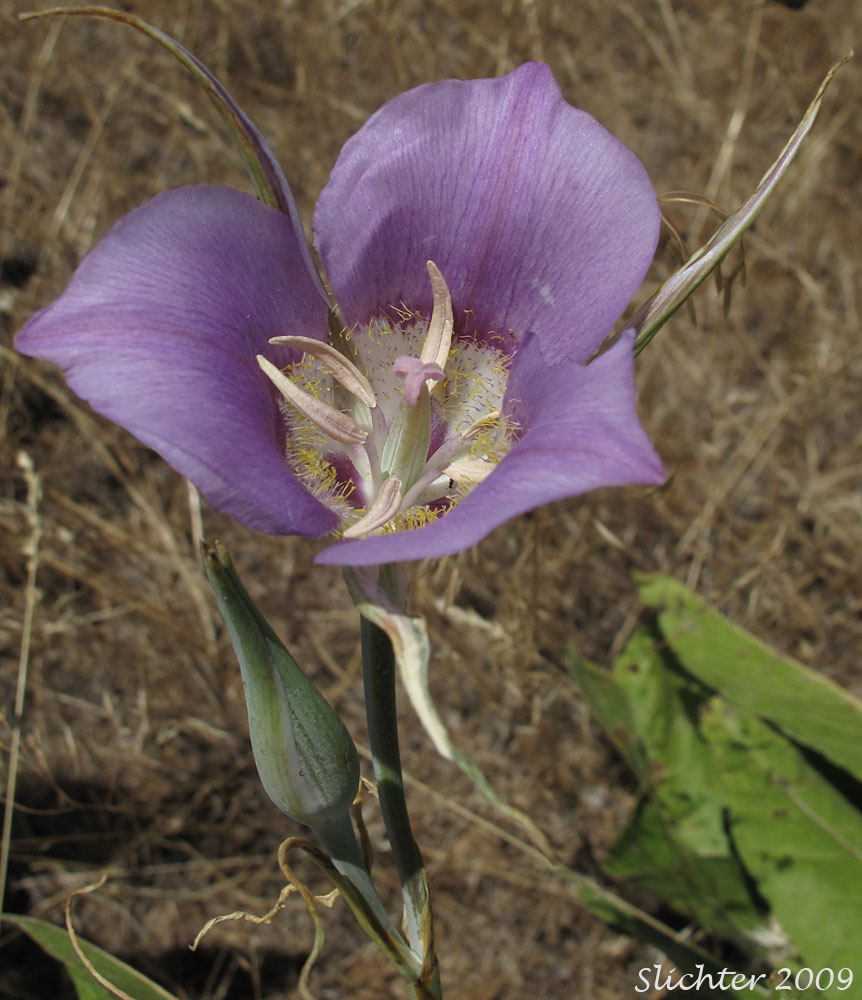
The photo at left shows a close-up of the inside of the flower
of green-banded mariposa lily as seen from the Columbia Hills to the north of
The Dalles, OR..........July 7, 2006. Note the 6 narrow, elliptical
anthers covered with lavendar colored pollen, the 3 lobed style and numerous
hairs on the inside lower surface of the petals. The photo at right shows a close-up of the flower of green-banded mariposa lily seen on slopes high above the Klickitat River in the Klickitat State Wildlife Area..........June 28, 2009.
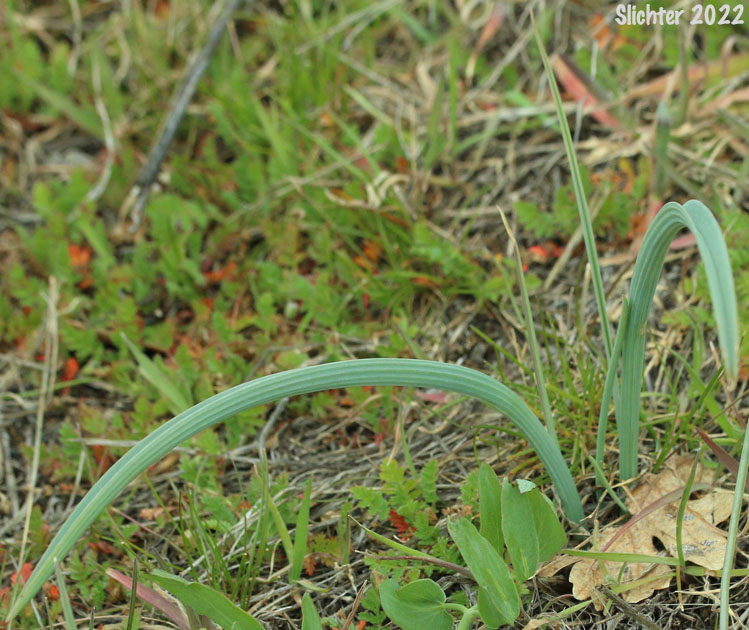
A photo of the early spring basal leaves of green-banded mariposa lily as seen on slopes high to the east of Lyle, WA at the Lyle Cherry Orchard.........March 11, 2022.
Paul Slichter